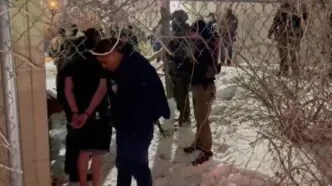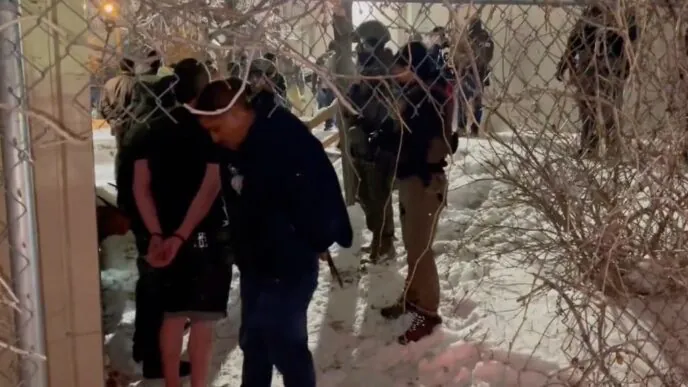Donald Trump’s deportation centers have faced mounting criticism, described by some as overcrowded and dehumanizing. Detainees are often held without due process and moved at will by the administration—creating a system with little oversight.
Amid these troubling conditions, one tragic case has drawn renewed attention.
According to The Guardian, a 52-year-old Chinese woman took her own life while in U.S. Customs and Border Protection (CBP) custody at the Yuma Station in Arizona. She had initially been arrested in California for overstaying her B1/B2 tourist visa and was later transferred to the facility, where agents reportedly found over $220,000 in cash in her possession—suspected to be linked to illicit activity.
The incident was raised by Democratic Representative Pramila Jayapal, a senior member of the House subcommittee on immigration. Jayapal criticized the CBP, alleging agents failed to conduct mandatory welfare checks before the woman’s death. Surveillance reportedly shows the woman crafting a noose and tying it around her neck—without receiving medical help for two hours afterward.
Although the facility claims routine welfare checks were carried out, these statements remain unverified, casting doubt on the agency’s transparency and protocol adherence.
This case has intensified scrutiny of CBP’s detention policies. Jayapal stressed the urgent need for transparency and proper safeguards to ensure the safety of individuals in custody. She also pointed to repeated failures by the U.S. to uphold the promise of treating detainees with dignity and fairness.
The Tucson Sentinel reported that a CBP spokesperson confirmed the woman was found “unresponsive in her cell” on March 2 at the Yuma station. Border agents provided initial aid before EMS transported her to a hospital, where she was pronounced dead.
“Every death that occurs while a person is in custody is tragic, taken seriously, and thoroughly investigated by CBP,” the official stated.
While CBP insists medical attention was provided and an investigation is ongoing, critics highlight procedural delays and oversights in acknowledging the death—raising deeper concerns about detainee treatment.
This incident comes amid a surge in Chinese nationals crossing the U.S. border. In 2023 alone, more than 50,000 Chinese migrants were detained in Arizona—double the number from the previous year. Many flee due to political repression and limited economic opportunities back home.
The tragedy has reignited calls for accountability within border enforcement agencies, spotlighting the urgent need for reforms to protect the mental health and well-being of all detained individuals.













